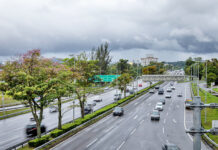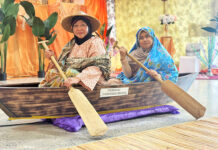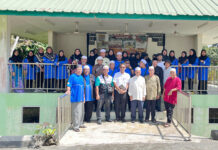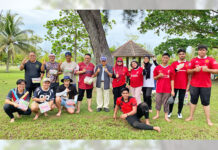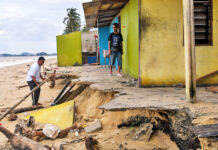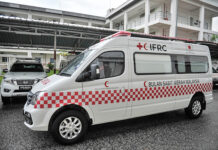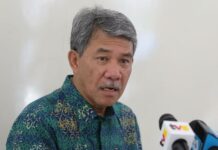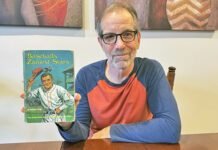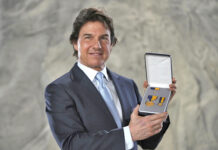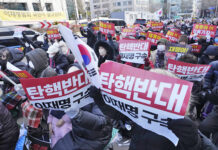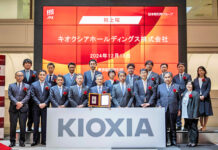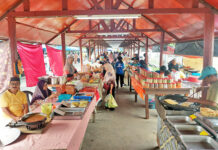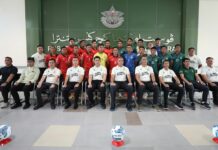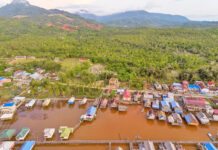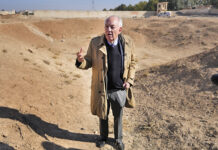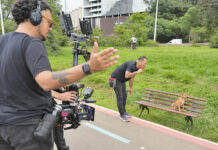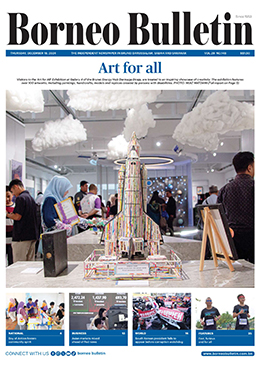Stroke has emerged as a major health concern in the Sultanate, ranking as the fourth leading cause of death and a growing source of long-term disability.
Recognising the urgent need to address this pressing issue, a group of dedicated medical students from Universiti Brunei Darussalam (UBD) has stepped forward with a mission to change the narrative.
With their initiative, ‘Recognise, Respond, Revitalise: Enhancing Stroke Knowledge and Prevention Strategies within the Community’, the team, known as SPARK (Stroke Prevention, Awareness, and Rehabilitation Knowledge), is on a mission to empower the public with essential knowledge and preventative strategies.
Through their community-focused approach, they are striving to create a healthier, more informed Brunei, one conversation at a time.
NUMBERS DON’T LIE
Stroke remains a formidable global health challenge, impacting millions and changing lives in an instant.
In 2019 alone, it struck with startling force – 12.2 million new cases were recorded, leading to over 6.6 million fatalities (Feigin et al, 2021). Strokes manifest in two main forms: ischemic, where a blocked artery halts blood flow to the brain, and haemorrhagic, which results from a ruptured blood vessel.
The effects can be devastating, ranging from lasting disabilities to loss of life, depending on the severity and location of the stroke.
In Brunei, the threat is no less serious. The nation grapples with high rates of risk factors, such as obesity, high blood pressure, and elevated cholesterol levels. These issues are further fuelled by lifestyle habits like smoking and a lack of regular physical activity.
Yet, despite the growing prevalence, awareness remains low – many are unaware of the warning signs or the urgent response required when a stroke strikes. To bridge this significant gap, SPARK aims to educate the community and advocate for proactive health measures through its campaign.
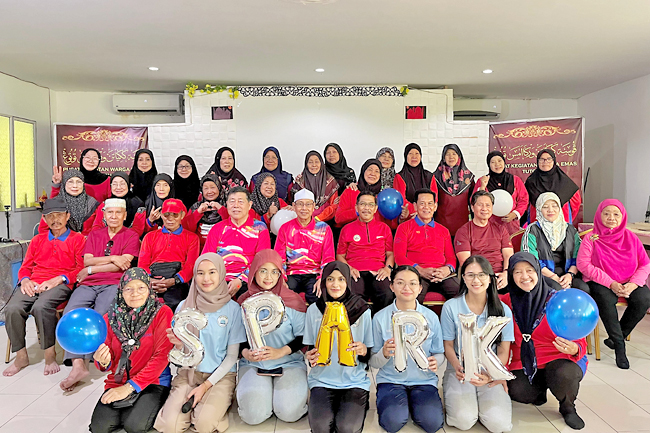
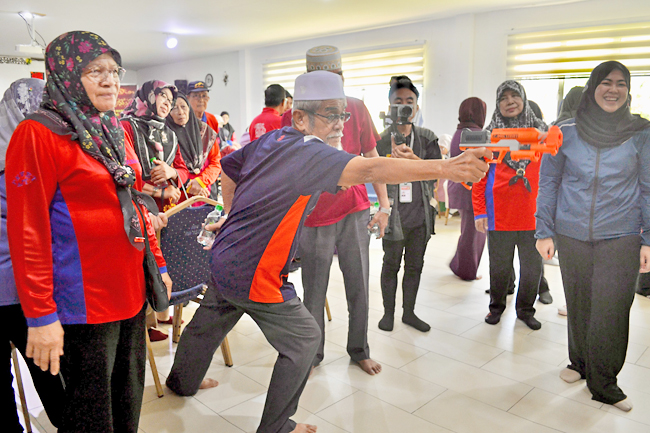
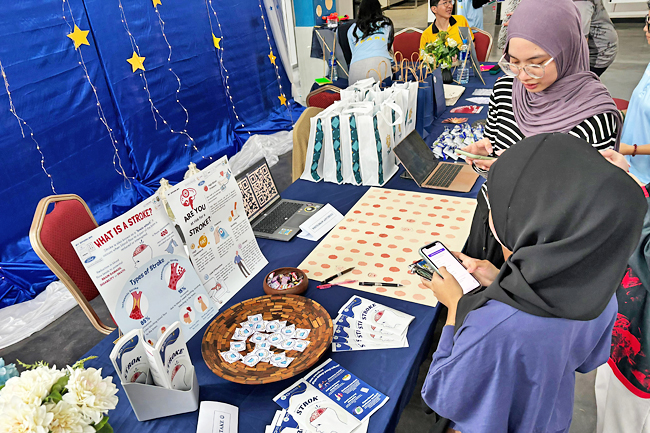
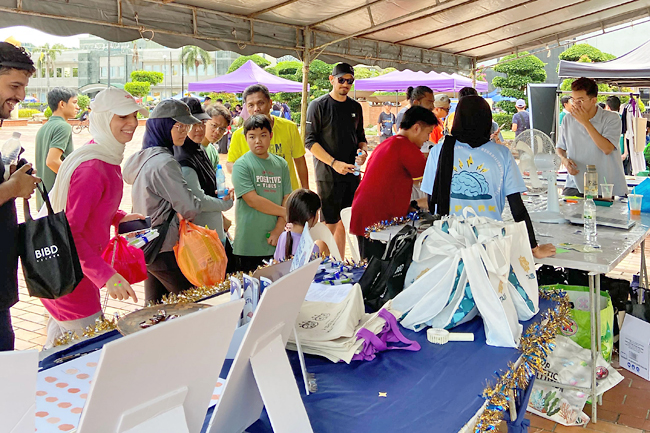
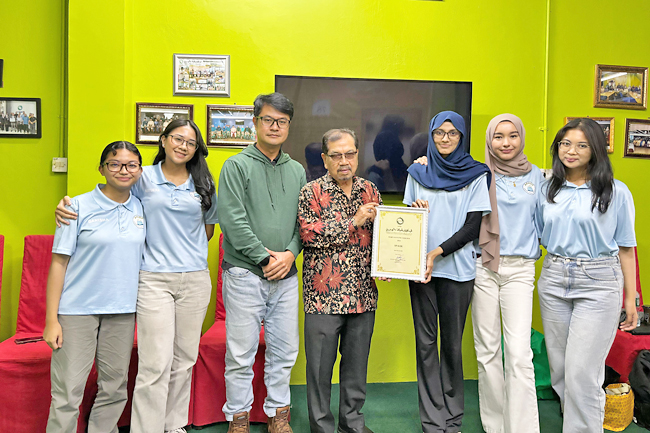
FOUR PILLARS OF PREVENTION
SPARK’s initiative revolves around four core objectives: enhancing public understanding of stroke, encouraging awareness of early warning signs, offering support for stroke survivors and their caregivers, and promoting rehabilitation and preventative strategies through community involvement.
To bring these aims to fruition, the group has meticulously divided their project into several phases. They kicked off with comprehensive research and planning, laying a solid foundation for their mission.
Collaborating with esteemed institutions such as the Brunei Neuroscience Stroke and Rehabilitation Centre (BNSRC) of the Pantai Jerudong Specialist Centre (PJSC) and the Health Promotion Centre, SPARK aims to harness expertise and resources to maximise their impact.
The project will culminate in a series of engaging interventions designed to connect with the community while evaluating the effectiveness of their initiatives.
ENGAGING THE COMMUNITY
SPARK has crafted a dynamic array of interventions designed to engage various segments of the population, from stroke survivors to the broader community.
A pivotal aspect of their initiative is the shadowing and rehabilitation training at the BNSRC.
Here, project members gain invaluable insights into post-stroke care, equipping them with essential skills that will be shared through informative videos, ensuring that knowledge transcends the hospital walls.
To fine-tune their educational efforts, SPARK employs pre- and post-questionnaires to assess participants’ understanding of stroke symptoms and prevention strategies. The data-driven approach not only tailors their outreach but also measures the success of their interventions.
Public engagement takes centre stage with educational talks and interactive booths at events like Bandarku Ceria and at UBD.
Attendees can participate in enjoyable activities, such as memory games focusing on stroke prevention and demonstrations on recognising symptoms using the ‘BE FAST’ mnemonic (Balance, Eyes, Face, Arms, Speech, and Time).
For the elderly, SPARK partners with Senior Citizens Activity Centre (PKWE) to offer health screenings and light physical exercises, identifying stroke risk factors while promoting a healthier lifestyle – a vital preventive measure against stroke.
DIGITAL ENGAGEMENT
Recognising the importance of digital platforms, SPARK also focused on social media engagement. By harnessing the potential of social media platforms like Instagram and TikTok, they are bringing stroke education into the limelight.
Infographics, interactive quizzes, and engaging videos are crafted to make learning about stroke prevention not just informative but fun – especially for younger audiences eager to engage.
Their digital campaign includes three impactful educational videos. One features real-life stories from stroke survivors and their caregivers, revealing the often-overlooked challenges they face.
Another provides practical rehabilitation exercises, acting as a crucial guide for survivors and their families. These heartfelt narratives aim to foster empathy and raise awareness, while also offering tangible advice on stroke prevention and recovery.
COMMITMENT TO LONG-TERM CHANGE
SPARK’s vision extends beyond immediate results; they aspire to create a sustainable network of support. Collaborating with institutions like PJSC and the Ministry of Education, they aim to influence policy and spark further research into stroke care in Brunei.
By championing awareness and promoting healthier lifestyles, SPARK is poised to make a meaningful impact, inspiring others to join the fight against this pressing public health challenge. – Rizal Faisal

